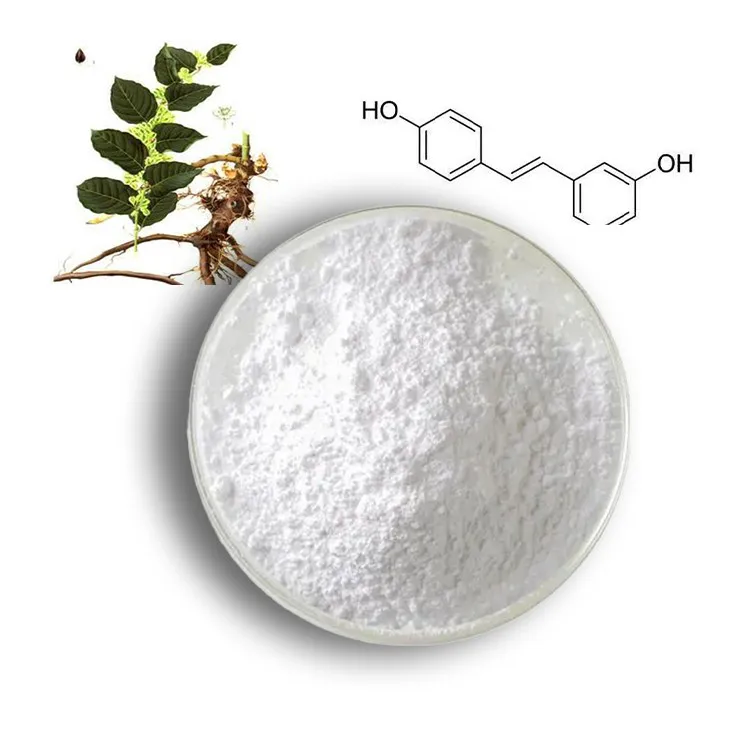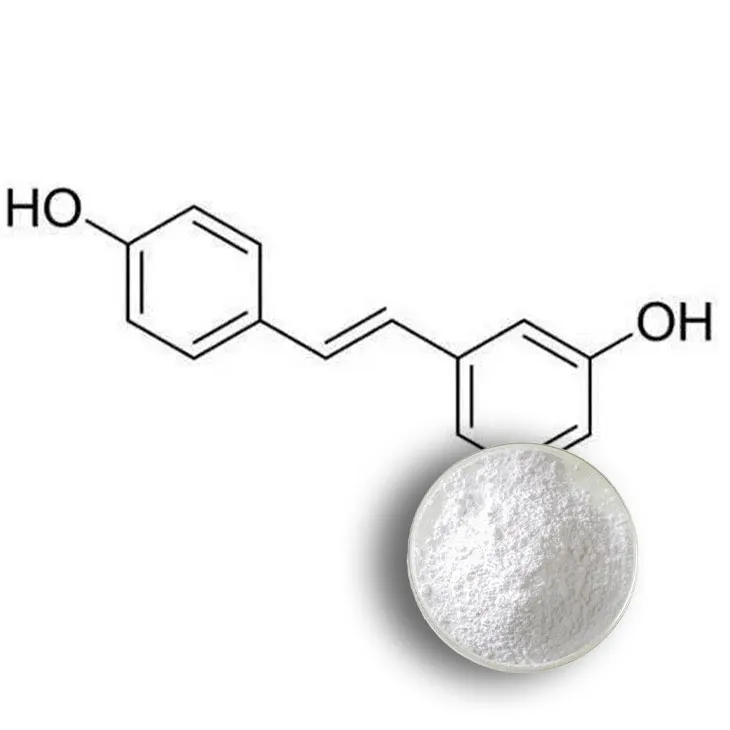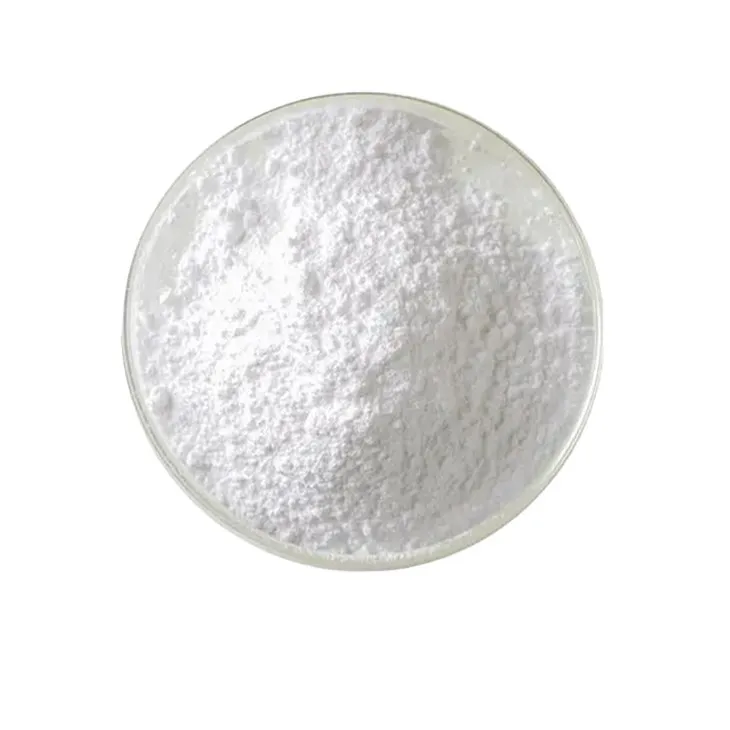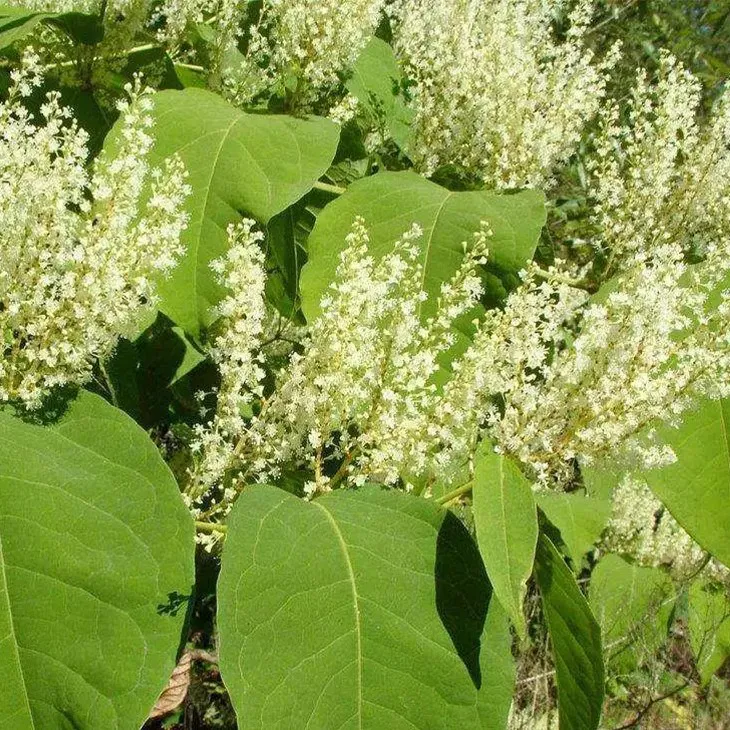- 0086-571-85302990
- sales@greenskybio.com
Use resveratrol extract to prevent diseases and enhance immunity.
2024-11-12

1. Introduction
In the pursuit of better health, the search for natural substances with significant health benefits has been an ongoing area of research. Resveratrol extract has emerged as a compound of great interest in recent years. It has been associated with various health - promoting properties, particularly in the prevention of diseases and the enhancement of the immune system. This article will explore the significance of Resveratrol extract in these aspects, including its sources, functions within the body, and the reasons it holds great promise for better health.

2. Sources of Resveratrol
Resveratrol is a natural polyphenolic compound that can be found in several sources.
2.1. Grape - Based Sources
One of the most well - known sources of resveratrol is grapes. It is particularly abundant in the skins of grapes. Red grapes contain higher levels of resveratrol compared to white grapes. This is because the skins of red grapes are left in contact with the juice during the winemaking process, allowing for the extraction of resveratrol. As a result, red wine is also a source of resveratrol, although the amount can vary depending on the type of grape, the region where it is grown, and the winemaking techniques employed.
2.2. Berries
Berries such as blueberries, raspberries, and mulberries also contain resveratrol. These fruits are rich in antioxidants in general, and resveratrol adds to their health - promoting properties. The presence of resveratrol in berries may contribute to their ability to protect against certain diseases and support overall health.
2.3. Peanuts
Peanuts are another source of resveratrol. Although the amount of resveratrol in peanuts is relatively lower compared to grapes, it still plays a role in the potential health benefits associated with peanut consumption. Resveratrol in peanuts may contribute to the anti - inflammatory and antioxidant properties of peanuts.

3. Functions of Resveratrol within the Body
Resveratrol has multiple functions within the body that are related to disease prevention and immunity enhancement.
3.1. Antioxidant Activity
One of the most important functions of resveratrol is its antioxidant activity. Antioxidants are substances that can neutralize free radicals in the body. Free radicals are highly reactive molecules that can cause damage to cells, proteins, and DNA. This damage can lead to various diseases, including cancer, heart disease, and neurodegenerative disorders. Resveratrol can scavenge free radicals and prevent them from causing oxidative stress. By reducing oxidative stress, resveratrol helps to protect cells from damage and maintain their normal function.
3.2. Anti - Inflammatory Effects
Inflammation is a natural response of the body to injury or infection. However, chronic inflammation can be harmful and is associated with many diseases, such as arthritis, diabetes, and certain cancers. Resveratrol has been shown to have anti - inflammatory effects. It can inhibit the production of inflammatory cytokines and enzymes, thereby reducing inflammation in the body. This anti - inflammatory property of resveratrol is important for preventing chronic diseases and promoting overall health.
3.3. Modulation of the Immune System
Resveratrol can also modulate the immune system. It can enhance the function of immune cells, such as macrophages and lymphocytes. Macrophages are cells that can engulf and destroy foreign invaders, such as bacteria and viruses. Lymphocytes play a key role in the adaptive immune response, including the production of antibodies. By enhancing the function of these immune cells, resveratrol can improve the body's ability to defend against infections and diseases.

4. Resveratrol and Disease Prevention
The functions of resveratrol within the body contribute to its potential in disease prevention.
4.1. Cardiovascular Disease
Resveratrol has been studied extensively for its potential role in preventing cardiovascular disease. It can improve blood lipid profiles by reducing LDL (low - density lipoprotein) cholesterol levels and increasing HDL (high - density lipoprotein) cholesterol levels. This helps to prevent the formation of atherosclerotic plaques in the arteries. Resveratrol can also inhibit platelet aggregation, which reduces the risk of blood clot formation and thrombosis. Additionally, its antioxidant and anti - inflammatory properties help to protect the heart and blood vessels from damage.
4.2. Cancer
In the context of cancer prevention, resveratrol has shown promise. It can inhibit the growth and proliferation of cancer cells through various mechanisms. For example, it can induce cell cycle arrest in cancer cells, preventing them from dividing uncontrollably. Resveratrol can also promote apoptosis (programmed cell death) in cancer cells. Moreover, its antioxidant and anti - inflammatory properties may help to prevent the initiation and progression of cancer by reducing DNA damage and inflammation.
4.3. Neurodegenerative Diseases
Neurodegenerative diseases, such as Alzheimer's and Parkinson's diseases, are characterized by the progressive loss of neurons in the brain. Resveratrol has been investigated for its potential to prevent these diseases. Its antioxidant and anti - inflammatory properties can help to protect neurons from damage. Resveratrol can also modulate certain signaling pathways in the brain that are involved in neurodegeneration, potentially slowing down the progression of these diseases.

5. Resveratrol and Immunity Enhancement
The ability of resveratrol to enhance the immune system is an important aspect of its health - promoting properties.
5.1. Boosting Innate Immunity
Resveratrol can enhance innate immunity, which is the body's first line of defense against infections. It can stimulate the production of antimicrobial peptides, which are small proteins that can kill bacteria, viruses, and fungi. Resveratrol can also enhance the phagocytic activity of macrophages, allowing them to more effectively engulf and destroy pathogens.
5.2. Strengthening Adaptive Immunity
In addition to innate immunity, resveratrol can also strengthen adaptive immunity. It can enhance the function of lymphocytes, such as T cells and B cells. T cells are involved in cell - mediated immunity, while B cells are responsible for antibody production. By enhancing the function of these lymphocytes, resveratrol can improve the body's ability to mount an effective immune response against specific pathogens.
6. Why Resveratrol Holds Great Promise for Better Health
There are several reasons why Resveratrol extract holds great promise for better health.
6.1. Natural Origin
Resveratrol is a natural compound, which makes it an attractive option for those seeking natural alternatives for health improvement. Compared to synthetic drugs, natural compounds like resveratrol are often perceived as safer and more compatible with the body's natural functions.
6.2. Multiple Health Benefits
As discussed earlier, resveratrol has multiple health benefits, including disease prevention and immunity enhancement. Its ability to target multiple aspects of health makes it a potentially powerful tool for overall well - being.
6.3. Research Support
There has been a significant amount of research on resveratrol in recent years. Although more research is still needed, the existing studies have provided evidence for its various health - promoting properties. This research support gives confidence in the potential of resveratrol as a health - enhancing agent.
7. Conclusion
Resveratrol extract has significant potential in preventing diseases and enhancing immunity. Its sources are diverse, including grapes, berries, and peanuts. Within the body, it functions as an antioxidant, anti - inflammatory agent, and modulator of the immune system. These functions contribute to its ability to prevent cardiovascular disease, cancer, neurodegenerative diseases, and other health conditions. Resveratrol also enhances both innate and adaptive immunity, making the body more resistant to infections. The natural origin, multiple health benefits, and research support make resveratrol a promising compound for better health. However, further research is still needed to fully understand its mechanisms of action and to develop optimal ways of using resveratrol for health promotion.
FAQ:
What is resveratrol extract?
Resveratrol extract is a natural compound that can be found in certain plants. It is a type of phytoalexin, which is produced by plants as a defense mechanism against pathogens such as bacteria and fungi. Resveratrol is particularly abundant in grapes, especially in the skins, as well as in blueberries, cranberries, and peanuts.
How does resveratrol extract prevent diseases?
Resveratrol has antioxidant properties. It can neutralize free radicals in the body, which are unstable molecules that can damage cells and contribute to the development of various diseases, including cancer, heart disease, and neurodegenerative disorders. Additionally, it has anti - inflammatory effects, which can help reduce chronic inflammation in the body, a factor associated with many diseases. It may also play a role in modulating cellular processes such as apoptosis (programmed cell death) and autophagy (cellular self - cleaning), which are important for maintaining healthy cells and preventing the growth of abnormal cells.
How does resveratrol extract enhance immunity?
Resveratrol can enhance the immune system in several ways. It can stimulate the activity of immune cells such as macrophages and lymphocytes. Macrophages are responsible for engulfing and destroying foreign invaders, while lymphocytes play a crucial role in recognizing and eliminating specific pathogens. Resveratrol may also help regulate the production of cytokines, which are signaling molecules that mediate communication between immune cells and can influence the immune response. By modulating cytokine production, resveratrol can help fine - tune the immune system to respond more effectively to threats.
Are there any side effects of using resveratrol extract?
When consumed in normal amounts through food sources, resveratrol is generally considered safe. However, high - dose supplements may cause some side effects. These can include digestive issues such as diarrhea, nausea, and abdominal pain. In some cases, it may also interact with certain medications, so it is important to consult a healthcare provider before starting resveratrol supplementation, especially if you are taking other drugs.
How much resveratrol extract should one take for health benefits?
The optimal dosage of resveratrol for health benefits is not yet clearly defined. Current research suggests that a moderate intake may be beneficial. For example, in some studies, doses ranging from 100 - 500 mg per day have been investigated, but more research is needed to determine the most effective and safe dosage for different health goals. Additionally, it's important to note that getting resveratrol from natural food sources is always a good first step.
Related literature
- Resveratrol: A Review of Its Anti - Cancer Effects"
- "The Role of Resveratrol in Heart Health: A Comprehensive Review"
- "Resveratrol and Immune Function: Current Knowledge and Future Perspectives"
- ▶ Hesperidin
- ▶ citrus bioflavonoids
- ▶ plant extract
- ▶ lycopene
- ▶ Diosmin
- ▶ Grape seed extract
- ▶ Sea buckthorn Juice Powder
- ▶ Beetroot powder
- ▶ Hops Extract
- ▶ Artichoke Extract
- ▶ Reishi mushroom extract
- ▶ Astaxanthin
- ▶ Green Tea Extract
- ▶ Curcumin Extract
- ▶ Horse Chestnut Extract
- ▶ Other Problems
- ▶ Boswellia Serrata Extract
- ▶ Resveratrol Extract
- ▶ Marigold Extract
- ▶ Grape Leaf Extract
- ▶ blog3
-
Cranberry Plants and Skin - care Products.
2024-11-12
-
Konjac Powder
2024-11-12
-
Red Date Extract
2024-11-12
-
Curcumin
2024-11-12
-
Calendula Extract
2024-11-12
-
Echinacea Extract
2024-11-12
-
Selenium yeast
2024-11-12
-
Garcinia Cambogia Extract
2024-11-12
-
Lemon Extract
2024-11-12
-
Citrus Aurantii Extract
2024-11-12
-
Ginseng Root Extract
2024-11-12





















